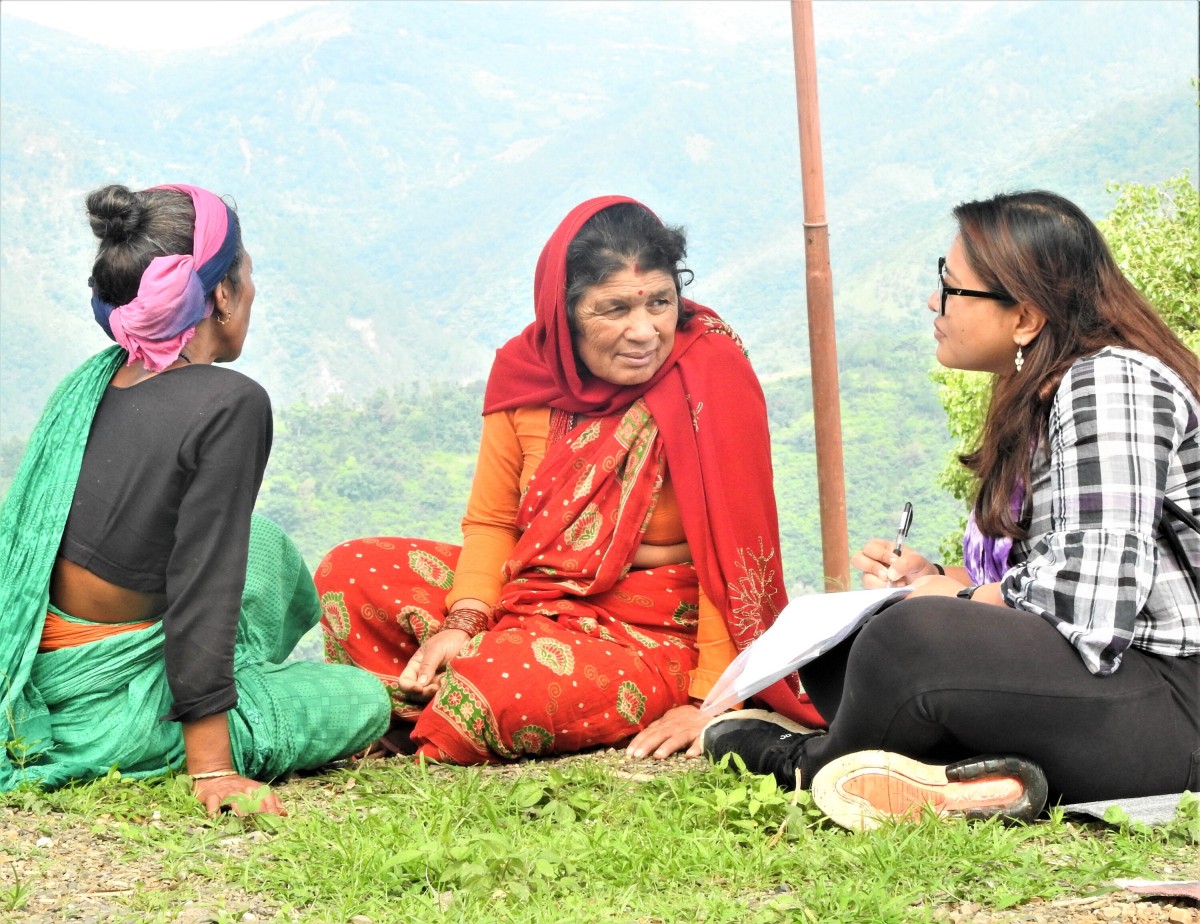I am Simavi - Pragati Bajracharya: ‘Our society can only move forward if everyone has access to water’
Pragati Bajracharya, WASH SDG Programme and communications officer in Nepal
Text by Lula Ahrens
Pragati Bajracharya’s childhood experiences in Kathmandu inspired her to try and shape Nepal’s future by providing people with access to safe and affordable water. Through her work, she strengthens women’s voices and increases their confidence. She encourages communities to question cultural practices that endanger women’s health and wellbeing. ‘Our society can only truly move forward if everyone has access to safe, affordable water.’
What does your role at Simavi involve?
'Our country team consists of the country coordinator, myself and the programme monitoring and learning officer. On the programme side I’m responsible for monitoring and supporting partners in programme implementation; assessing reports, workplans and budgets; timely signalling of bottlenecks and contract management. On the communication side, I lead the development of videos, blogs and stories for internal and external audiences.'
What inspired you to choose this career path?
'My childhood experiences in Kathmandu. I vividly remember my mother waking up at 4am to collect water. A few times a week, we had a maximum window of one to two hours to fill up our water tank. We had a piped water connection in our home. When water came in through that main tap, we would fill big water tanks on our ground floor. We then had to ration and save the water for future use. As there was no fixed time schedule, my mother had to be on high alert throughout the day and night. The (un)availability of water used to dictate our week ahead. At times, the scarcity of water made people desperate, with arguments and fights erupting at the neighbouring communal water spot. To this day, my entire family is very conscious about saving water and reusing it whenever possible. My experiences inspired me to build my career in the water sector.'
Please describe your programme areas
'Many regions in Nepal still lack access to a consistent water supply. Access to basic water services was a first-generation problem. Today, we are tackling the issue of non-functional water systems; only 25 percent of water systems in Nepal are fully functional.
The WASH SDG programme is being implemented in two rural and two urban municipalities in Nepal’s Banke and Surkhet districts, chosen to capture the diversity of culture, ethnicity, and ideals of different community groups.
We place great emphasis on ensuring that women and girls are not only given a seat at the table and a platform to voice their opinions, but also hold the power to shape and influence decisions. Women empowerment is our priority. The Nepalese government stipulates that 33 percent of water committees must consist of women representatives. But our goal is to ensure women are not just involved in a tokenism manner to complete the quota. We want to ensure there is equal representation (50-50). The process of change is slow, but we will remain persistent.'

Have your efforts yielded concrete results?
'Yes, there are quite a few success stories. A woman who started her career by volunteering with one of our partners is now the deputy mayor of one of the municipalities, which is quite an achievement. Another woman started her own bio-sand filter production business, having received her training from us. She now employs 15-18 people, and is creating a lasting impact on the community. Our job is to plant seeds and let them grow on their own, and that is exactly what happened here.'
How would you describe the role division between you and your partners?
'Partner collaboration is the strength of our programme. Each of our partners has their own niche expertise, and the responsibility largely lies on them to steer the programme. We ensure they are involved in decision making on an equal basis, with transparent communication at all times. We are primarily there for technical support and monitoring, in more of an advisory role.'
What is the number one thing that motivates you?
'My biggest motivation is knowing that my actions have the potential to create a tangible and positive impact on the lives of our community. On a quarterly basis, we go for visits to monitor the progress of our programme. Those visits give me the chance to connect with partners, community members and other stakeholders. Only when connecting with the women and girls we work for can we assess if our approach is working or not. Nothing is more inspiring than direct feedback from community members, be it positive or negative.'
What is the final goal you’re working towards?
As long as we are concerned about fulfilling our basic necessities, there will be limits as to how much Nepal can grow and develop. My ambitious dream is for everyone to have access to affordable and safe water. Only then can our society truly move forward.
Want to work with Simavi as a partner?
Do you want to work with Simavi as a partner? Have a look further on our website.


